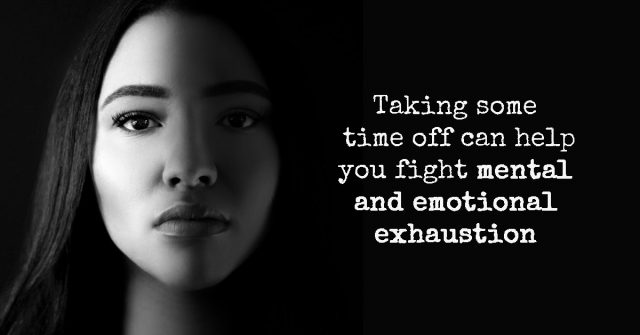More often than not, we find ourselves torn between work, family, and chores around the house. A hectic lifestyle causes stress and that is if you play in all of life’s fields. But what if you are struggling to find a good job or finish college? What if you are on a good path career-wise, but you are struggling to find a matching partner or lose those pounds you gained during the holidays? Guess what? That causes stress too.
Life is all about bumpy roads around every corner, so stress has somehow become an inextricable part of our lives. We have become mentally and emotionally drained without realizing it, and maybe the time has come for a change. A change is done by giving some time to yourself to do the things you always wanted to do but felt insecure about and by getting out of your comfort zone.
So, on that note, before proceeding to reshape your life, there are a few signs you need to know in order to prevent both mental and emotional drainage:
1. Insomnia
If you are noticing signs of a lack of sleep try to empty your mind of worries and try being more active during the day to be able to fall asleep at night. Remember, a minimum of at least 7 hours is needed to keep your body function properly and to its full potential.
2. Detachment
The words “numb”, “disconnected”, “disengaged” or “senseless” ring a bell? You feel like you have fallen in some sort of an existentialist crisis and nothing really concerns you? You often catch yourself avoiding human interactions or when you do eventually interact with people, you feel like you cannot bond with them?
If this is happening, make sure to take some time to yourself to figure out what you want to do in life and heal your soul before moving on.
3. Nausea and fatigue
Emotional and mental burnout shows through physical discomfort, such as headache, nausea or dizziness. If you experience any of these, you should opt for a physical and mental recovery by boosting your immune system, sleeping longer, and taking one thing at a time. Physical exhaustion only reflects your state of mind, so do not rush to meetings, do not stress about details – just take a day off and relax.
4. Weight problems
As a sign of mental and emotional exhaustion, people may experience weight loss or weight gain, and this is not something to be overlooked. Get yourself back on track with an appropriate diet for your body, even if it means putting an alarm to remind you of eating.
5. Agitation
Do you easily get mad with your friends and family? Hurting your loved ones is not going to make you feel any better, but exercise or writing a journal about your emotions may just do the trick! Get all that frustration and disappointment out of your system by beating the boxing bag or writing about it in your journal – it helps!
6. No motivation
You are unwilling to undertake an action or start a new chapter in life. This is something we have all had to deal with at a certain point in life, but it doesn’t mean it’s going to last forever. This is just a temporary phase, so do your so-called silent period, wait up until you gather the strength and move on.
7. Panic attacks
Panic attacks often occur when we are changing a huge part of our lives, like our working or living environment or when we lose someone. Hyperventilation, tingling sensation in your hands, chest pains, or a sense of doom are among some of the symptoms of panic attacks. Do not let these attacks control your life and become part of your routine.
So, mind these signs, take a deep breath, start a journal, exercise, go on a picnic with friends, get a new haircut, or take up a dancing class – do whatever you need to recharge your batteries and heal.
Oh, and keep in mind that it’s just a phase, so now put some music on that good old radio, grab a glass of wine, and chill.


